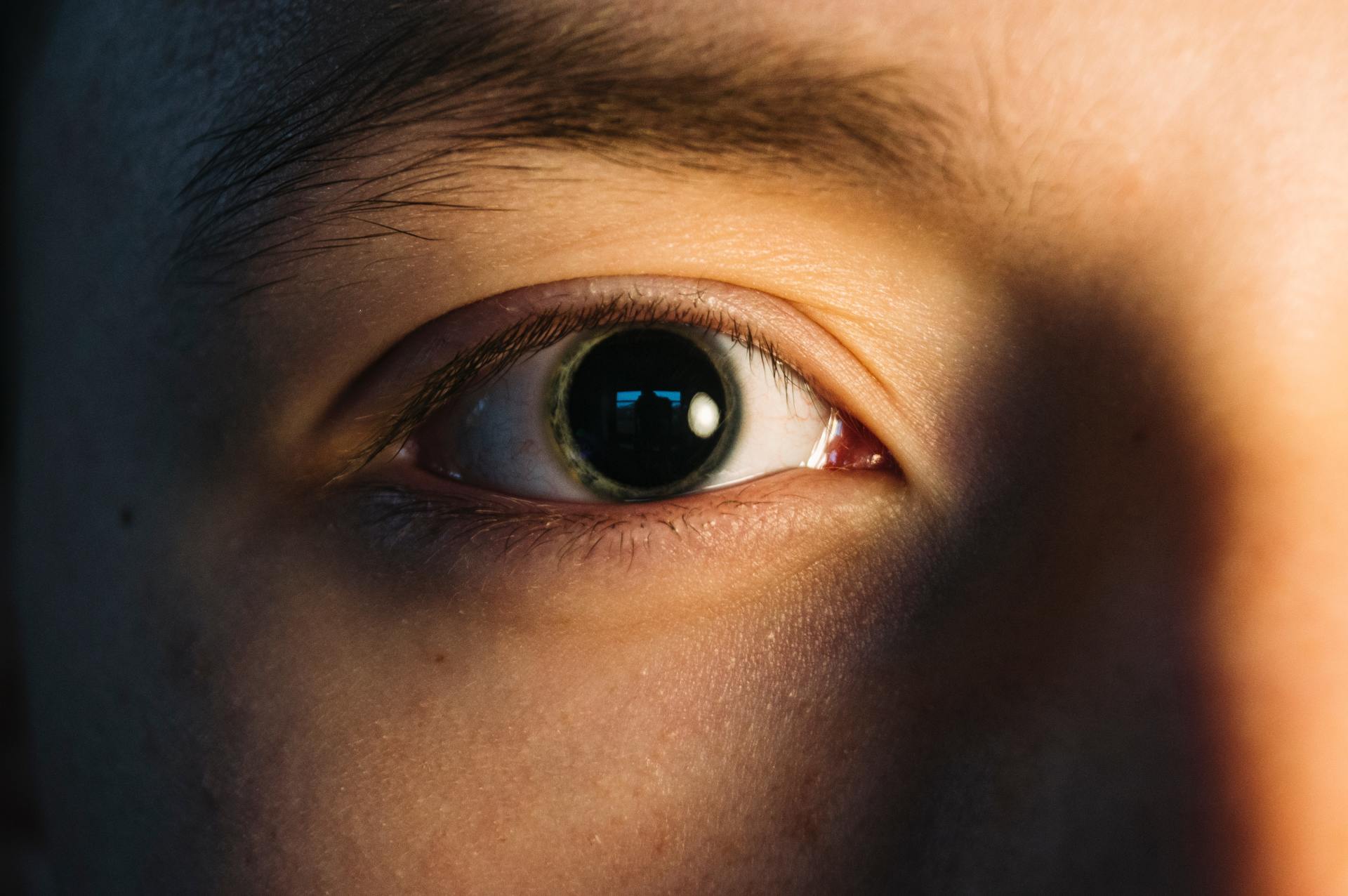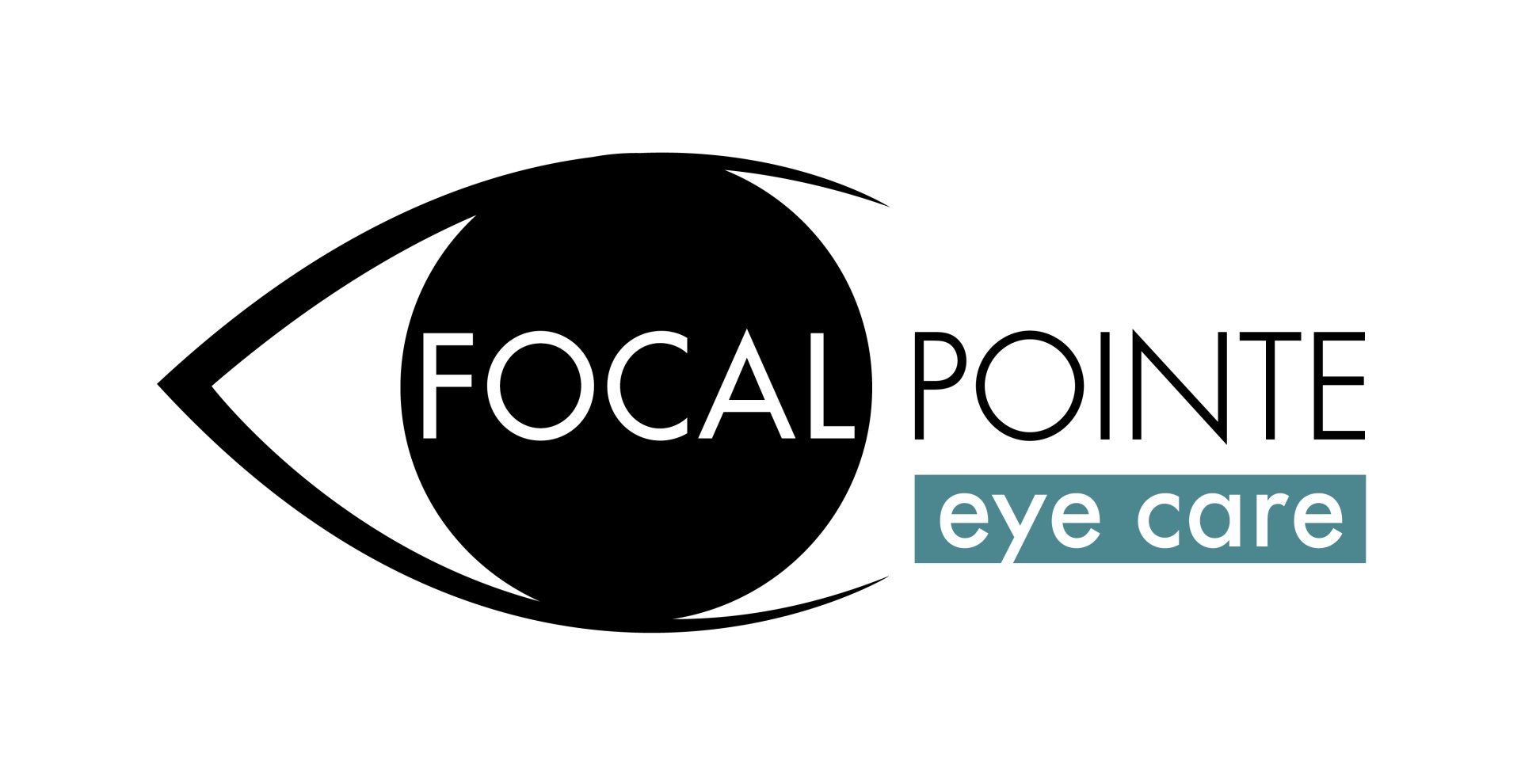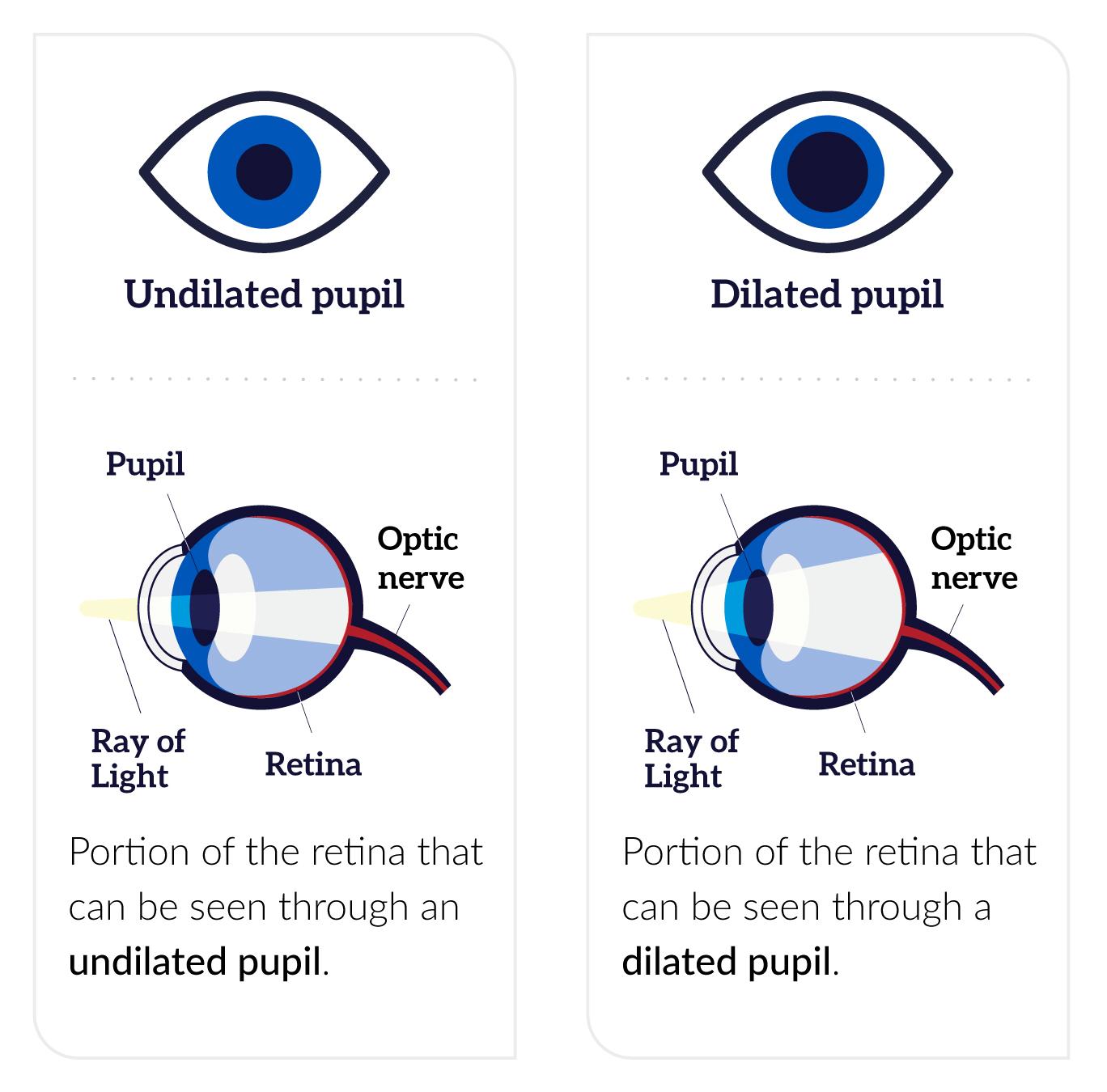What is eye dilation and why is it so important?
Makayla Hall

The actual definition of the word dilation, according to Cambridge Academic Content Dictionary, is the process of becoming wider or more open. So dilating in reference to your eyes is the process by which the pupils (black center portion of your eye) are enlarged. Your pupils naturally enlarge and constrict throughout the day without you even noticing.
When you are exposed to bright light your pupils constrict (get smaller) in order to prevent too much light entering and causing damage to the very back of your eye, the retina. When you enter a dark room your pupils enlarge (get bigger) to allow more light to enter your eye which gives you better vision in dim lighting. So why does your optometrist need your pupils dilated during your exam?
When your pupils are dilated they give your optometrist
a much better view of the back of your eye, called the retina, along with your optic nerve. Examining the retina and optic nerve is very important for diagnosing, preventing, and treating eye conditions such as glaucoma and macular degeneration; both of which could lead to vision loss if left untreated. When your pupils are not dilated the optometrist can still view the back of your eye, but his or her view is much more limited (see diagram below) and prevents them from thoroughly seeing your entire retina.
How do eye dilation drops work and what should you expect when getting dilated?
There are many different types of dilation drops that can be used, each varying in how long they last. 2.5% Phenylephrine is commonly used. This is a clear, colorless, and sterile topical ophthalmic solution that prevents the iris muscles (colored part of the eye) from constricting the pupil, thus causing dilation. When your pupils are dilated you can expect some light sensitivity, or photophobia, due to more light entering your eye. You can also expect some blurred vision which is caused by the iris muscles being unable to constrict and contract to allow you to focus.
Dilation drops affect everyone differently and according to the American Academy of Ophthalmology; can last from a few to several hours depending on the type of dilating eye drop used and how your specific eyes react. To help with the effects of dilation, you can bring sunglasses to wear after your eye exam
to help with the light sensitivity. If you are worried about having blurred vision and how long it may last, speak with your optometrist about your concerns and perhaps bring along someone who is willing to drive for you after your appointment.
Overall, dilation is painless and is a very important diagnostic tool used by optometrists to help with diagnosing and treating eye conditions. A dilated eye exam is recommended yearly. Tolerating some light sensitivity and blurred vision for a few hours definitely outweighs the possibility of vision loss in the future from not getting a thorough eye health exam. Don’t hesitate to speak with your optometrist about your concerns and uncertainties pertaining to a dilated eye exam.
Focal Pointe Eye Care is located in West Chester, Ohio and provides comprehensive eye exams for individuals and families in the greater Cincinnati area. Learn more about eye exams. For the very best in eye care, contact Focal Pointe today at 513-779-3937.


